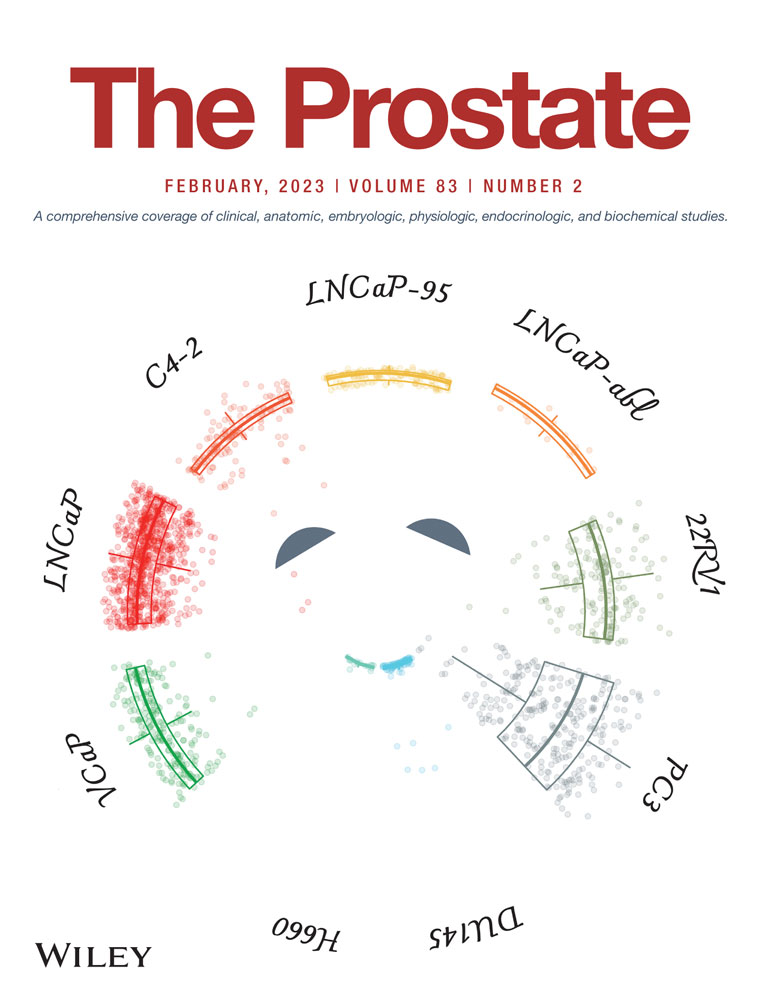Genomic characterization of metastatic castration-resistant prostate cancer patients undergoing PSMA radioligand therapy: A single-center experience
Swayamjeet Satapathy and Chandan K. Das contributed equally to this study and share the first authorship.
Abstract
Background
Genomic defects in DNA-damage repair (DDR) mechanisms have been proposed to affect the radiosensitivity of prostate cancers. In this study, we intended to evaluate the prevalence of genetic alterations in a cohort of metastatic castration-resistant prostate cancer (mCRPC) patients undergoing radioligand therapy (RLT) with prostate-specific membrane antigen (PSMA)-inhibitors as well as the impact of such mutations on treatment outcomes.
Methods
Data of consecutive mCRPC patients from 2017 to 2021 who were treated with PSMA-RLT and underwent next-generation sequencing (NGS) were collected and analyzed for response and survival outcomes.
Results
In 95 patients of mCRPC treated with PSMA-RLT, 15 patients (median age: 66 years, range: 50–73 years; [177Lu]Lu-PSMA-617, n = 12; [225Ac]Ac-PSMA-617, n = 3) underwent NGS. The median progression-free survival (PFS) of this cohort was 3 months (95% confidence interval: 1.6–4.4 months). On NGS, 21 genetic alterations were reported in 10/15 (67%) patients, of which 13 were DDR-associated alterations involving the genes: ATM (n = 3), BRCA2 (n = 3), TP53 (n = 2), PTEN (n = 2), FANCD2 (n = 1), FANCM (n = 1), and NBN (n = 1). Overall, 5/15 (33%) patients harbored six pathogenic variants (BRCA2, n = 2; ATM, n = 1; TP53, n = 1; PTEN, n = 2). No significant difference was noted for the biochemical response, radiological response, PFS, and overall survival between the patients with and without genetic alterations.
Conclusions
Patients of mCRPC undergoing PSMA-RLT were frequently seen to harbor DDR-associated aberrations, albeit with no significant impact on treatment outcomes. Large prospective trials comparing PSMA-RLT-related outcomes in DDR-deficient and -proficient patients are required to bring out the differences, if any, in a more observable manner.
CONFLICT OF INTEREST
The authors declare no conflict of interest.
Open Research
DATA AVAILABILITY STATEMENT
De-identified participant data can be made available to bona fide researchers affiliated to an appropriate institution on reasonable request to the corresponding author following publication.




